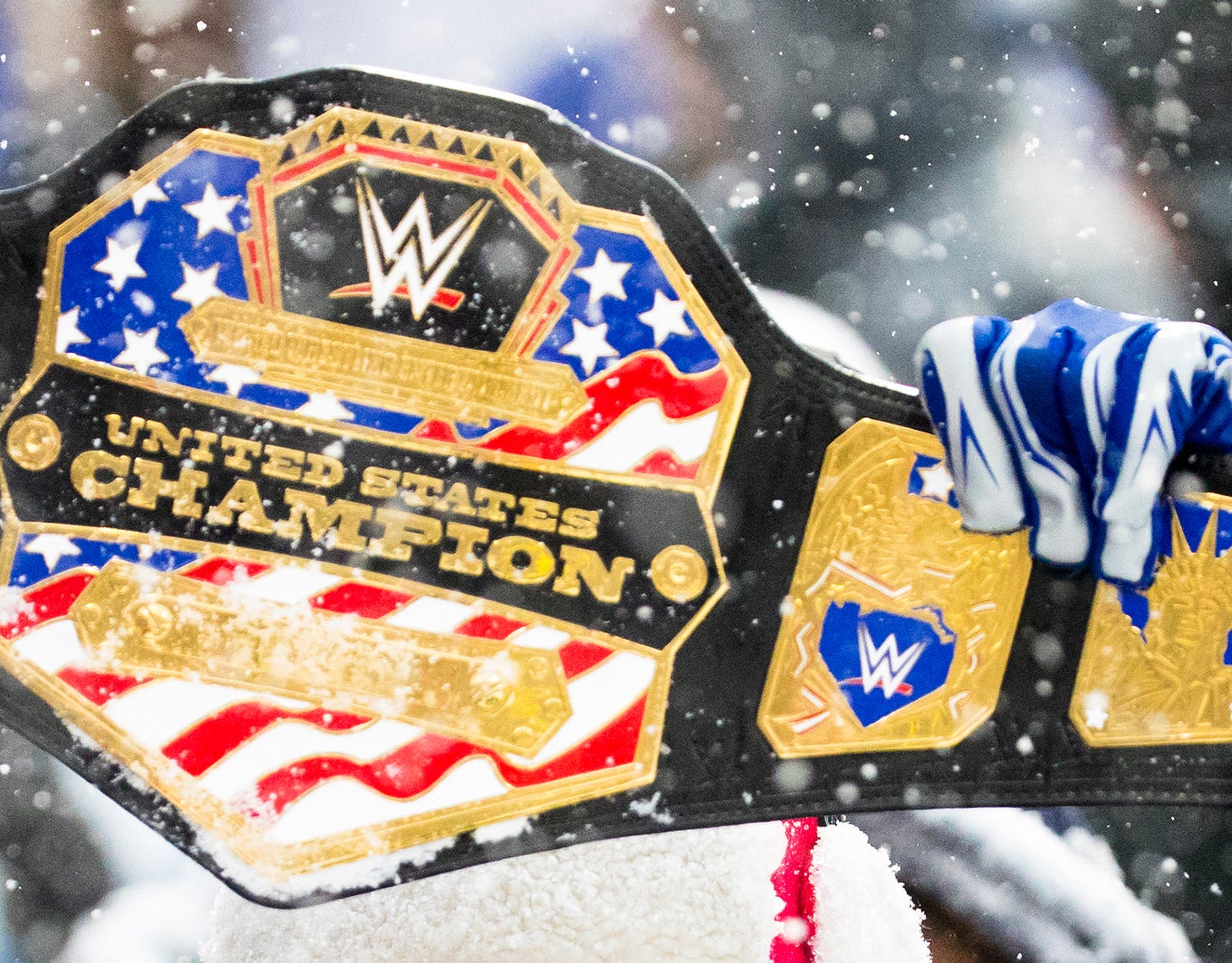Can the GOP Avoid the Fate of World Championship Wrestling?
The lessons Republicans can learn from a Southern-circuit pro-wrestling outfit dominated by a cult of personality.
The world of professional wrestling in America is ruled today by Vince McMahon’s World Wrestling Entertainment (WWE), with a handful of smaller operations such as Ring of Honor and All Elite Wrestling vying for talent and viewers. Though it’s fair to say WWE defines professional wrestling in the American imagination, the company spent the better part of the 1990s fighting off Ted Turner’s World Championship Wrestling as WCW’s flagship program Monday Nitro went head to head with the WWF’s Monday Night Raw in what became known as the Monday Night Wars.
World Championship Wrestling was an odd duck; it grew out of Jim Crockett Promotions, a southern company that originated from Mid-South Championship Wrestling, Mid-Atlantic Championship Wrestling, and Georgia Championship Wrestling, all territories that were part of the National Wrestling Alliance. The home of wrestlers such as Ric Flair, Dusty Rhodes, the Road Warriors, and the Midnight Express, JCP stars were as popular in their own territory as more well-known figures such as Hulk Hogan and Andre the Giant were nationally. Backed by Turner’s money and massive television exposure, WCW initially struggled to balance its roots in the South with the national exposure brought about by cable television. The Monday Night Wars helped change all that, particularly WCW’s introduction of the villainous NWO—headed by Hulk Hogan, playing heel for the first time since his rise to prominence in the WWE—in 1996.
It’s hard to overstate how popular WCW was. At its height in 1998, a main event segment on WCW’s Monday Nitro scored a 6.0 Nielsen rating, a staggering number for a cable television program at the time. Yet three years later, the company was in such dire straits that the WWE was able to buy it on the cheap. Ratings were in free fall for months, ticket sales were abysmal, and talented young wrestlers were jumping ship to WWE or overseas promotions at the first opportunity.
There are some interesting comparisons between WCW’s decline and that of the modern Republican party.
Why did WCW collapse? A couple reasons stand out. For starters, the company focused too tightly on the personality of one man: Hulk Hogan. After Hogan’s gimmick became stale in the WWE (then WWF) in 1993, he signed with Turner’s WCW in early 1994. For the next several years, WCW programming revolved around Hogan's NWO. The company put other top-tier talent around him—Randy Savage, Kevin Nash, and Scott Hall—but all of these characters were still yoked to a single, central storyline. This one error compounded several others.
Because the company willingly tied its fate to the career of one man and his running buddies, it was unable to innovate when needed. The fixation on Hogan’s character limited the number of stories that could be told, even as fans grew cold to Hogan’s act. It also stymied the elevation of other talented performers. Many of these wrestlers—guys such as Chris Jericho, Chris Benoit, Eddie Guerrero, among others—went on to great success in the WWE.
The present state of the Republican party bears an uncomfortable resemblance to the late stages of WCW. Like Hogan in the WCW, the GOP revolves entirely around the personality of Trump to such an extent that it is nearly impossible to support one without supporting the other. As viewers tired of Hulk Hogan, they slowly abandoned WCW. The danger for the GOP is that as voters grow weary of Trump, they will grow out of the party, as well.
The centrality of Trump has a similar effect on the GOP’s talent pool. Just as WCW failed to grow and develop talented stars to take the place of Hogan and other aging wrestlers, the GOP has squandered four years of talent development at the congressional level. Bright young Republicans have spent enormous energy on tasks that revolve around Donald Trump; trying to pass legislation without incident, avoiding a primary for a more Trumpist challenger, or carrying water for the president in an attempt to curry his favor. Not only has the party failed to grow serious talent during the last four years, it has failed to produce policies that are responsive to the moment in which we live. Just as fans eventually turned away from WCW, the national GOP is giving voters fewer and fewer reasons to turn out for elections.
There is a final reason WCW failed. Significant figures in company leadership—in the front office and the locker room—did not respect the institution of professional wrestling. Perhaps embarrassed by its roots as a southern promotion, WCW thought that it could survive on star power alone. The company forgot that their business revolved around exciting characters and compelling stories, not cartoonish personalities and flash-in-the-pan gimmicks. The Republican party has spent the last four years living on Donald Trump’s personality with all the Barnum-like capital he accumulated through years of appearances in tabloids, reality television, and, you got it, World Wrestling Entertainment. And while the number of boat parades for him may be numerous, the hard work of reaching out to voters beyond the base has been ignored.
World Championship Wrestling wasn’t able to survive its decline. If the GOP hopes to avoid that fate, it will probably have to move away from personality politics and once again put thoughtful policy and enduring principle at the center of its coalition.


